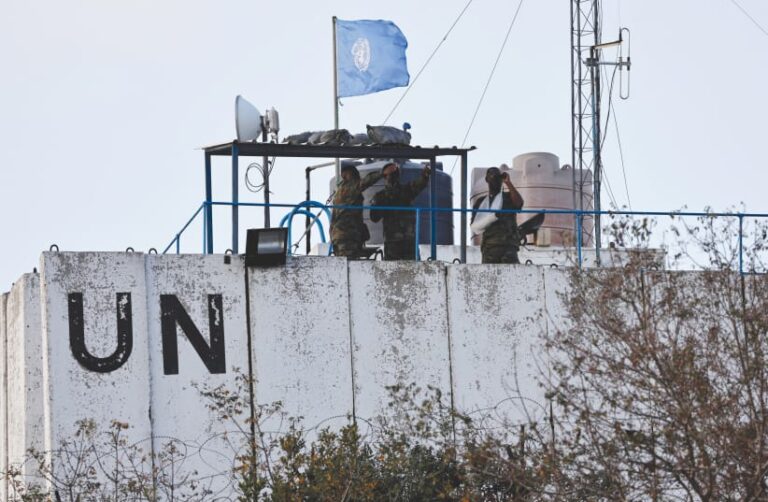Recent IDF operations in southern Lebanon have uncovered shocking revelations about Hezbollah’s manipulation of UNIFIL, the UN peacekeeping force in the region.
According to security sources who spoke to Yisrael Hayom, Hezbollah operatives captured during the IDF’s ground campaign admitted to bribing UNIFIL personnel and using their positions to further the terror group’s objectives. Hezbollah reportedly took control of UNIFIL cameras positioned in compounds near the Israeli border, utilizing them for surveillance and other illicit activities.
In light of these revelations, Israel has voiced its intention to prioritize future arrangements with the Lebanese army over relying on UNIFIL, which has long been criticized for its ineffectiveness in curbing Hezbollah’s growing influence along the Israeli border. Sources indicate that Israel plans to shift its strategy, citing UNIFIL’s inability to enforce its mandate and accusations of collaboration with Hezbollah operatives.
UNIFIL was deployed in southern Lebanon following the UN Security Council resolution in the aftermath of Operation Litani in 1978. Initially tasked with peacekeeping, the force’s mandate was expanded after the Second Lebanon War in 2006 to include limited enforcement powers under UN Resolution 1701, which aimed to prevent Hezbollah from conducting terrorist activities south of the Litani River. However, Israel has repeatedly claimed that UNIFIL has failed in its mission, with some instances suggesting the force has even facilitated Hezbollah’s plans.
During recent IDF operations in southern Lebanon aimed at dismantling Hezbollah’s terror network, UNIFIL refused Israel’s requests to evacuate their positions near the border, despite escalating violence in the area. The peacekeepers’ refusal caught Israeli officials by surprise and led to diplomatic efforts to convince UNIFIL to withdraw from the danger zone.
Israel believes UNIFIL’s insistence on remaining is an attempt to obscure its long-standing failure to prevent Hezbollah’s arms buildup and violations of Resolution 1701.
Adding to the friction, UNIFIL has accused the IDF of forcibly entering one of its positions during heavy missile fire, with Israeli tanks allegedly damaging a gate. The IDF explained that the incident occurred while attempting to evacuate wounded soldiers under fire from Hezbollah forces.
Hezbollah has also reportedly been launching missiles and rockets at Israel from sites close to UNIFIL positions, further straining relations between the IDF and the UN force. Some projectiles have even landed near UNIFIL outposts, highlighting the precarious nature of their presence.
The growing tension between the IDF and UNIFIL is drawing international scrutiny and has led to diplomatic friction with European countries. Israel’s ambassador to the UN, Danny Danon, condemned the situation, stating, “Hezbollah terrorists use UNIFIL outposts as hiding places and set up ambushes nearby. The UN’s insistence on keeping UNIFIL soldiers in the line of fire is incomprehensible.”
Despite Israel’s criticism, the UN appears intent on maintaining UNIFIL’s presence in the region even after the current conflict subsides. However, Israeli officials have made it clear they plan to shift their reliance towards the Lebanese army to ensure better enforcement along the volatile border.
(YWN World Headquarters – NYC)











